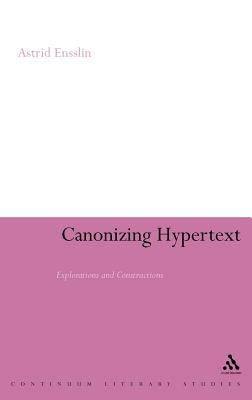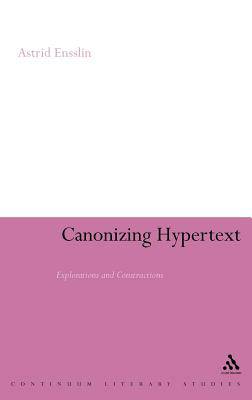
- Afhalen na 1 uur in een winkel met voorraad
- Gratis thuislevering in België vanaf € 30
- Ruim aanbod met 7 miljoen producten
- Afhalen na 1 uur in een winkel met voorraad
- Gratis thuislevering in België vanaf € 30
- Ruim aanbod met 7 miljoen producten
Zoeken
Omschrijving
This innovative monograph focuses on a contemporary form of computer-based literature called 'literary hypertext', a digital, interactive, communicative form of new media writing. Canonizing Hypertext combines theoretical and hermeneutic investigations with empirical research into the motivational and pedagogic possibilities of this form of literature. It focuses on key questions for literary scholars and teachers: How can literature be taught in such a way as to make it relevant for an increasingly hypermedia-oriented readership? How can the rapidly evolving new media be integrated into curricula that still seek to transmit traditional literary competence? How can the notion of literary competence be broadened to take into account these current trends? This study, which argues for hypertexts integration in the literary canon, offers a critical overview of developments in hypertext theory, an exemplary hypertext canon and an evaluation of possible classroom applications.
Specificaties
Betrokkenen
- Auteur(s):
- Uitgeverij:
Inhoud
- Aantal bladzijden:
- 206
- Taal:
- Engels
- Reeks:
Eigenschappen
- Productcode (EAN):
- 9780826495587
- Verschijningsdatum:
- 9/07/2007
- Uitvoering:
- Hardcover
- Formaat:
- Ongenaaid / garenloos gebonden
- Afmetingen:
- 166 mm x 235 mm
- Gewicht:
- 449 g

Alleen bij Standaard Boekhandel
+ 746 punten op je klantenkaart van Standaard Boekhandel
Beoordelingen
We publiceren alleen reviews die voldoen aan de voorwaarden voor reviews. Bekijk onze voorwaarden voor reviews.







